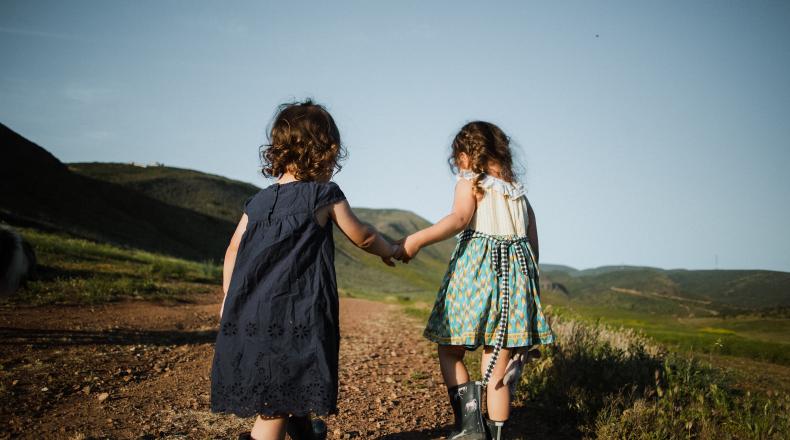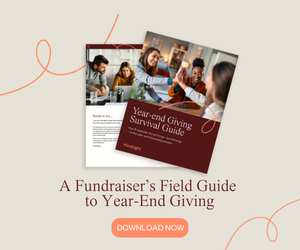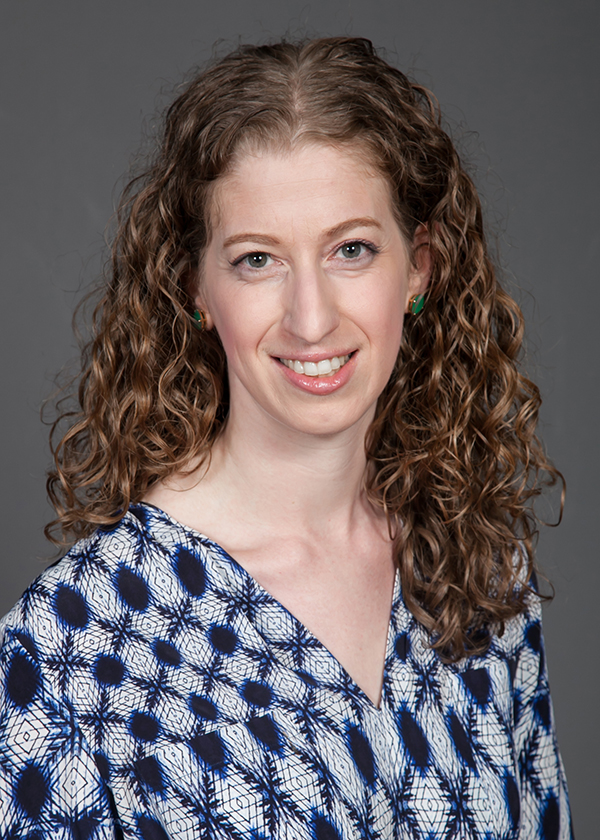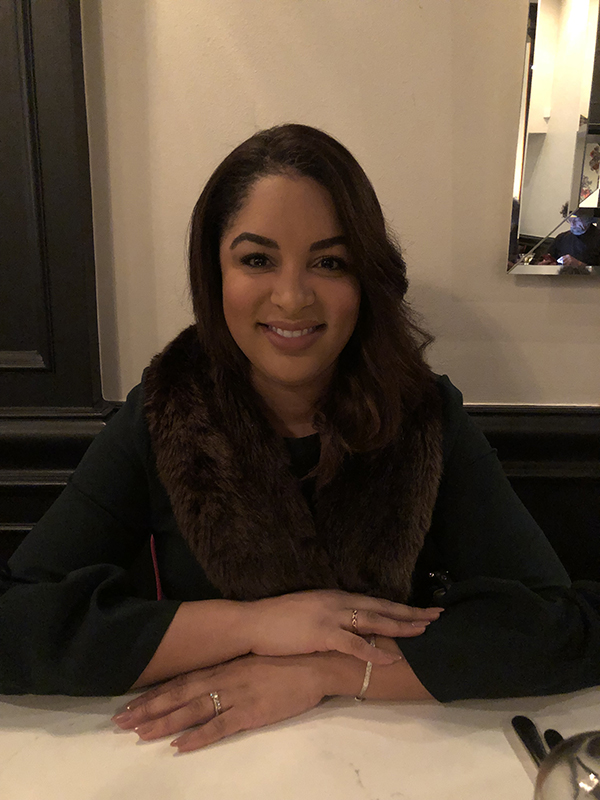Friendship and Allyship in Fundraising

Fundraisers Hava Goldberg and Tanya Hannah Rumble share their perspectives on what allyship means to them and why it’s important for fundraising professionals, especially those from diverse and underrepresented backgrounds, to seek out friendships within the sector that are grounded in allyship, support, and shared values.
Allyship is a term that gets used a lot these days. It is often coupled with words like championing, advocating, and solidarity. While there is no doubt that all these actions play an important role in understanding power and privilege, they tend not to be where authentic, meaningful allyship begins. True allyship comes from building strong relationships—relationships that offer mutual trust, accountability, and, most importantly, friendship.
Our friendship has allowed us to grow as allies by providing us with the opportunity to learn and unlearn from each other’s lived experiences, confide in each other about our challenges and work together to better our sector’s commitment to diversity and inclusion.
We met in 2016 when we were both selected to participate in the Inclusion and Philanthropy Fellowship funded by the AFP Foundation for Philanthropy - Canada. Beyond the insights and new networks, we gained through the fellowship, the biggest gift was the new friendships based on the shared values of equity, inclusivity and disrupting our sector.
By sharing our allyship journey, we hope to inspire others to proactively build friendships that offer the opportunity to see the world through someone else’s eyes.
From Tanya’s perspective:
Hava and I are both professional fundraisers, though we have diverse lived and professional experiences. What makes this relationship unique is the allyship we offer to another, the unwavering commitment to lifting each other and non-competitively celebrating our individual successes, and the trust to confide in one another the wounds and entanglements that come with the fundraising territory. This is a deep allyship. The support Hava has offered me as a racialized fundraiser goes beyond the surface and aims to break away from the systems of power that have oppressed me.
We first met during a particularly vulnerable time for me, both personally and professionally. Having a trusting friend and ally who was both sympathetic to my situation but also empathetic to the power wielded by the people who were making my professional life a challenge made a significant difference. But it was so much more than a person to vent to who understands what it's like to be a professional fundraiser—it gave way to a beautiful and productive collaboration grounded in shared values.
I often think about how I can be a better ally, activist and disruptor in my personal and professional lives. I am often reminded about creating new and genuine relationships with people whose identities converge from my own. Sympathy is easy; empathy is much harder—being able to place yourself in the shoes of someone else is only possible if you can sensitize yourself to the lived experience of others that are the least like you. By no means are Hava and I opposites, we share some commonalities and privileges, but I really do not think our paths would have crossed if not for the fellowship. And most certainly, would she be the supportive ally she is to me if not for the friendship we have cultivated? Doubtful.
From Hava’s perspective:
I have always loved reading. One of the main reasons I love books is that, at their best, they allow me to delve into other worlds, experiences and lives. As someone who is passionate about diversity and inclusion, I have read dozens of books about the experiences and history of racialized peoples. But nothing has given me a deeper understanding of the complexity of the day-to-day concerns and challenges faced by a racialized woman than the honest, vulnerable conversations I have had with Tanya about the challenges she has faced personally and professionally.
Tanya’s openness has always made me feel comfortable sharing my own experiences authentically with her. She is an invaluable sounding board, confidant and supporter. Often, when something I feel uncomfortable about has happened to myself or someone else (either in a work or personal setting), Tanya is the first person I go to for a gut check and to unpack and problem solve the situation.
Understanding Tanya’s experiences have motivated me to more carefully examine the imbalances in power and privilege in my own personal and professional life and work to dismantle them. There is no doubt in my mind that my friendship with Tanya has allowed me to grow as an anti-racist and has spurred my dedication to advocating for a more inclusive and diverse profession. My friendship with Tanya has deepened my knowledge of equity issues, made me a more courageous advocate, and galvanized my resolve in speaking out against injustice.
Fundraising can be fun, it can be challenging, it can be rewarding and it can be draining. And then some. Having friends who understand the professional complexities of this work is crucial to surviving and thriving in the fundraising sector. Fostering friendships with diverse individuals who have different backgrounds and life experiences to yours offers the additional opportunity to become a stronger ally and, in turn, a better leader.
Our friendship has helped us appreciate that two people from different backgrounds can still share many of the same values. Over the course of our friendship, we have mused about the types of careers we wanted, and we supported each other in reaching our professional goals. We have reflected on the leaders we are and wanted to be and talked about the role models inspiring us to disrupt the status quo in fundraising. Together, we have sought out opportunities to speak and write on subjects we are passionate about. We have interviewed a number of inspirational leaders, including Caroline Riseboro and Tycely Williams, and facilitated an inspired dialogue on intersectional identity and leadership in fundraising at the 2019 AFP Greater Toronto Chapter Congress.
While we recognize that every relationship is unique, we hope that in sharing our own experiences, we can offer some strategies and opportunities others can learn from. Maybe you’re looking to build deeper connections in the sector, or you are feeling isolated, misunderstood, and ready to leave the sector. No matter where you’re at, we hope that our experience can inspire you to seek out a friendship grounded in allyship of your own:
- Like with fundraising, find a point of commonality to uncover mutual objectives. This could be a simple as reaching out to that colleague you have always admired but never had a chance to get close to. Or perhaps a peer you enjoyed hearing from when you were part of a working group but haven’t had further chance to collaborate. Seek them out, reconnect. Now more than ever we, need community.
- Intellectual curiosity, paired with non-judgmental empathy, will allow you to access new conversations and relationships even with colleagues (in your organization or outside) that you have known for a long time.
- Strive to connect with people at all different stages of their careers, those with less power than you, not in positional leadership roles, and in other functions also have valuable insights to share and things to teach.
- Friendships grounded in allyship also provide an opportunity for you to understand the sector better. Building relationships with diverse individuals within your field will offer you invaluable connections and insight when you’re looking for your next professional role and need an ear to the ground about the reputations of organizations and leaders (particularly when it comes to diversity and inclusion).
- Developing productive professional friendships can be deepened through collaboration, giving you a reason to connect, test different points of view, and create a shared output. Consider writing articles together, presenting workshops or starting a discussion group.
The current pandemic has brought renewed energy to social and political movements. Utilizing these collective moments of vulnerability to become an ally can lead to beautiful friendships. We need more of this in the fundraising world. Far too many fundraising professionals in our sector, particularly those from minority backgrounds, feel disconnected, alienated and disenfranchised. In the same way we are taught as fundraisers to meet our goals by fostering relationships, we can change the power and privilege dynamics in our sector by building allyship one friendship at a time. Change begins with individual relationships. Change begins with understanding one another’s lived experiences. Change begins when allies come together, lift each other up and fight for a more equitable world.


 Hava Goldberg, CFRE, is a passionate fundraising leader and community builder who is currently the director of resource development strategic initiatives at Habitat for Humanity Canada. She has nearly a decade of experience raising funds for both national and local causes. She is a proud alumnus of the University of Guelph and holds a Masters in NonProfit Management (specializing in Jewish Communal Services) from Spertus College (Chicago). She is also a graduate of the AFP Inclusion and Philanthropy Fellowship. Since graduating from the fellowship, she has written and spoken extensively on improving diversity and inclusion in the fundraising sector. In her free time, Hava loves yoga, cooking (and eating) and sampling craft beers.
Hava Goldberg, CFRE, is a passionate fundraising leader and community builder who is currently the director of resource development strategic initiatives at Habitat for Humanity Canada. She has nearly a decade of experience raising funds for both national and local causes. She is a proud alumnus of the University of Guelph and holds a Masters in NonProfit Management (specializing in Jewish Communal Services) from Spertus College (Chicago). She is also a graduate of the AFP Inclusion and Philanthropy Fellowship. Since graduating from the fellowship, she has written and spoken extensively on improving diversity and inclusion in the fundraising sector. In her free time, Hava loves yoga, cooking (and eating) and sampling craft beers. Tanya Hannah Rumble, CFRE, MFA-P™, is a fundraising leader who has raised millions for some of Canada's largest charities. Tanya is passionate about equity, diversity and inclusion, and power and privilege and how these intersect with philanthropy. Tanya holds an Honors Bachelor of Arts in Political Science from McMaster, earned a Graduate Certificate in Marketing Communications at NYU; she is also a graduate of the AFP Inclusion and Philanthropy Fellowship and DiverseCity Fellowship. Tanya is a new mom, a voracious consumer of podcasts, and a baking enthusiast. Tanya gratefully acknowledges the traditional territories of the Mississauga and Haudenosaunee nations, whose traditional territory she lives and works with her husband and young son.
Tanya Hannah Rumble, CFRE, MFA-P™, is a fundraising leader who has raised millions for some of Canada's largest charities. Tanya is passionate about equity, diversity and inclusion, and power and privilege and how these intersect with philanthropy. Tanya holds an Honors Bachelor of Arts in Political Science from McMaster, earned a Graduate Certificate in Marketing Communications at NYU; she is also a graduate of the AFP Inclusion and Philanthropy Fellowship and DiverseCity Fellowship. Tanya is a new mom, a voracious consumer of podcasts, and a baking enthusiast. Tanya gratefully acknowledges the traditional territories of the Mississauga and Haudenosaunee nations, whose traditional territory she lives and works with her husband and young son. 
